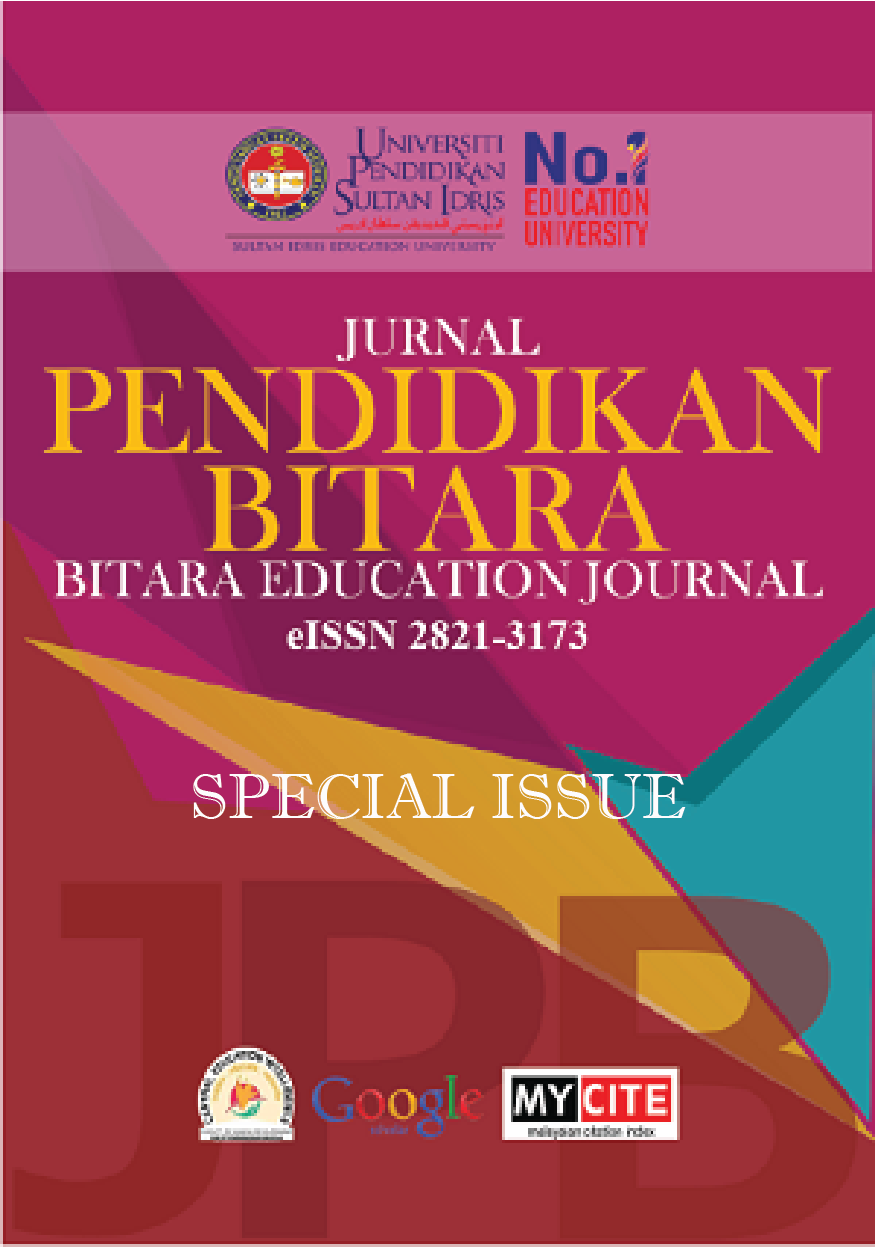Relationship between Affection and Behaviour towards Inclusive Education among the Preservice Teachers
DOI:
https://doi.org/10.37134/bitara.vol17.sp.8.2024Keywords:
Affection, Behaviour, Inclusive Education, Preservice teachers, Teacher training programme, Spearman correlationAbstract
The relationship between affection and behaviour in inclusive education is an important topic to explore. Affection refers to the positive feelings and emotions that individuals have towards others, while behavior refers to the actions and reactions of individuals in response to various stimuli. The relationship between preservice teachers' affection for behaviour in inclusive education was examined in this study. This study exploited quantitative design and made use of the survey method. 254 respondents who enrolled in a teacher training programme for their bachelor's degree received a set of questionnaire. The Statistical Software Package for Social Sciences (SPSS) version 27 was used to analyse the quantitative data of this study. The inferential data was evaluated using Spearman correlation due to the non-normal data distribution, whilst the descriptive data was given in mean and standard deviation. The study's results showed that both variables, preservice teachers' level of affection and their level of behaviour towards inclusive education were at low and very low levels, respectively (M=17.63; SD=5.55; M=25.76; SD=3.67). However, the results of the inferential statistics revealed a weak significant relationship between the degree of affection for inclusive education and the degree of behaviour towards it (ρ=.32, p<.01). To conclude, preservice teachers' positive attitudes and emotions towards inclusive education can influence their behaviour towards it. The study suggests that fostering a positive attitude towards inclusive education can help teachers to become more effective in inclusive classrooms. Overall, the study's findings contribute to our understanding of the relationship between affection and behaviour in inclusive education, and the importance of promoting positive attitudes towards it.
Downloads
References
Aeshah, A., & Rumpasri, S. (2023). Preservice teachers’ attitudes, knowledge, and self-efficacy of inclusive teaching practices. International Journal of Disability, Development and Education, 70(5), 705-721.
Carla, B., Natalie, E-M., Susanne, W., Tanja, L., & Manfred, S. (2022). Pre-service teachers’ attitudes towards inclusion and their relationships to personality traits and learning opportunities. European Journal of Special Needs Education, 37(1), 146-155.
Franziska, L. & Anke, H. (2019) Changing attitudes to inclusion in preservice teacher education: a systematic review. Educational Research, 61(2), 231-253.
Gravetter, F., & Wallnau, L. (2015). Statistics for behavioral sciences (10th ed.). Cengage Learning, Inc.
Kim, H. Y. (2013). Statistical notes for clinical researchers: assessing normal distribution (2) using skewness and kurtosis. Restorative dentistry & endodontics, 38(1), 52-54.
Mahat, M. (2008). The development of a psychometrically-sound instrument to measure teachers’ multidimensional attitudes toward inclusive education. International Journal of Special Education, 23(1), 82-92.
Massé, L, Nadeau, M-F., Gaudreau, N., Nadeau, S., Gauthier, C., & Lessard, A. (2022) Pre-service Teachers’ Attitudes Toward Students With Behavioral Difficulties: Associations With Individual and Education Program Characteristics. Front. Educ. 7:846223
Nunnally, J. C. and Bernstein, I. H. (1994). Psychometric Theory. McGraw-Hill.
Sadeh, I., & Shonfeld, M. (2019). Measuring preservice teachers’ attitudes towards inclusive education: A systematic review. European Journal of Special Needs Education, 34(2), 221-239.
Tebatso, N., & Md Mirajur, R. S. (2021). Inclusive education: A literature review on definitions, attitudes and pedagogical challenges. International Journal of Research and Innovation in Social Science (IJRISS), 5(3), 358-365.
UNESCO. (2020). Guidelines for inclusion: Ensuring access to education for all. UNESCO Publishing.
World Medical Association. (2013). World Medical Association Declaration of Helsinki: Ethical Principles for Medical Research Involving Human Subjects. Retrieved from https://www.wma.net/policies-post/wma-declaration-of-helsinki-ethical-principles-for-medical-research-involving-human-subjects/#:~:text=Medical%20research%20involving%20human%20subjects%20must%20be%20conducted%20only%20by,or%20other%20health%20care%20professional.
Yu, S., & Cho, E. (2022). Preservice teachers’ attitudes toward inclusion in early childhood classrooms: A review of the literature. Early Childhood Education Journal, 50, 687–698.
Downloads
Published
How to Cite
Issue
Section
License
Copyright (c) 2024 Kie Yin Teng , Rebecca Lu Yann Ru, Carol Rayong, Nurjanna Mohd Yusof, Rismaya Abbas

This work is licensed under a Creative Commons Attribution-NonCommercial-ShareAlike 4.0 International License.





